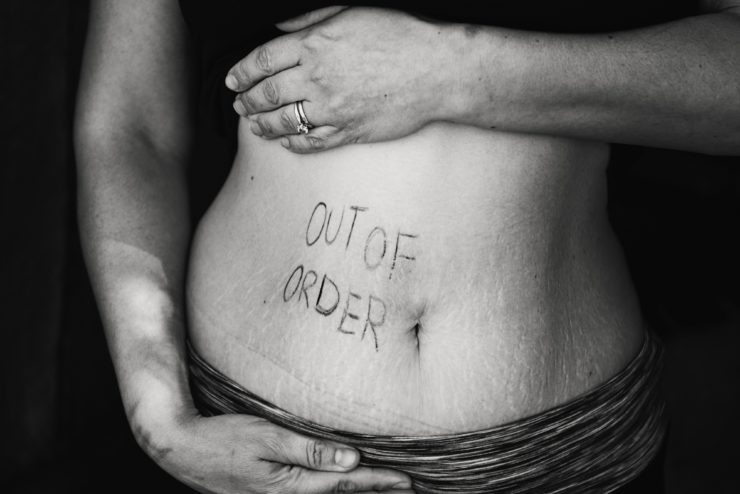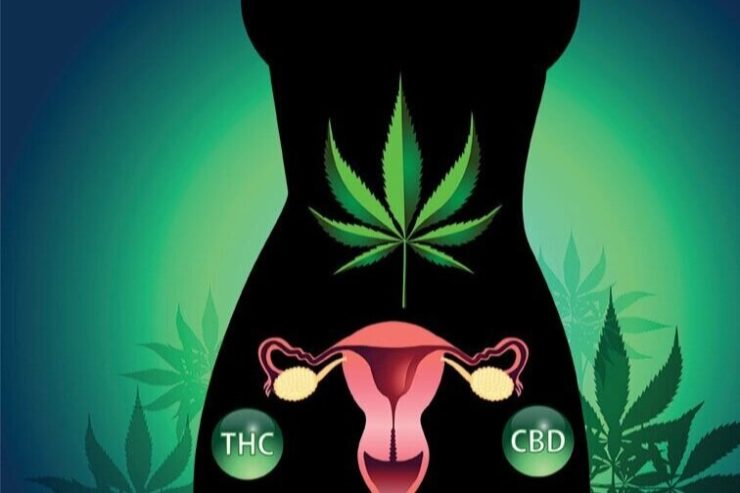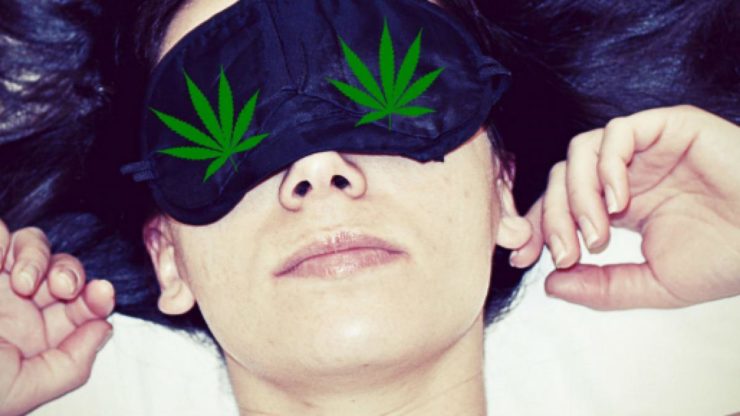
Increasingly, women are coming to my practice complaining that they are being prescribed increasing amounts of pharmaceuticals but their health is not improving. They are frustrated and becoming wary of a system that seems to have a pill for everything and I am picking up a common thread—that we women are being overmedicated. I’m using this blog to summarize many of the conditions and complaints I’m hearing and to offer advice on how medical cannabis might serve as an alternative to improving women’s health and lives. please share it widely.
Dr. June
“Can I use medical cannabis while taking prescription psychiatric medications?”
This is probably the most common question my women patients ask me. The answer is YES. but that question is usually followed by something like, “I have so many side effects (insomnia, low libido) from these prescriptions, can medical cannabis also help with these?”
Again, the answer is YES, but one major challenge for anyone looking to incorporate cannabis and CBD into their health routines is finding reliable, medically responsible guidance to help you use the plant. Most doctors don’t know much about cannabis meds, so they may not know that they can make the effects of certain psychiatric meds more powerful. You should also know that 1 out of 4 women in America now takes psychiatric medication, compared with 1 in 7 men. Women are nearly twice as likely to receive a diagnosis of depression or anxiety disorder than men. I’ll get to why I think this overmedication of women is happening but first….
These are the most prescribed psychiatric drugs in the US:
- Zoloft (sertaline) – Depression
- Xanax (alprazolam) – Anxiety
- Lexapro (escitalopram) – Depression
- Desyrel (trazodone) – Anxiety, Depression
- Wellbutrin (bupropion) – Depression
- Adderall (dextroamphetamine and amphetamine) – ADHD
- Prozac (fluoxetine) – Depression
- Celexa (citalopram) – Depression
- Cymbalta (duloxetine) – Depression
- Ativan (lorazepam) – Anxiety
Pharmaceuticals improve the lives of many women. But for others, they aren’t necessary or can cause side effects as bad as the underlying condition. The increase in prescriptions for psychiatric medications, often by doctors in other specialties, is creating a generation of overly medicated women. It makes me wonder if women are making decisions based on sound medicine or if they’re responding to peer pressure or advertising. I mean right now, antidepressants are being used in the clinical management of anxiety disorders, chronic pain, and even menopausal hot flashes. That’s insane.
Also by writing a prescription for every individual symptom, some basic connections are being overlooked. For example, more than 90% of depressed patients complain about difficulties in falling asleep, sleep disruption or early morning awakenings. Sleep disruption and depression are closely linked. Three-quarters of depressed patients also suffer from insomnia symptoms but one pill for every symptom obfuscates these obvious links.
Women as a group know they are being overmedicated and are trying to find ways to wean themselves off. In 2018, the cannabis delivery service Eaze reported that the number of women buying cannabis products from them almost doubled in 2018, increasing sales by 92 percent. According to BDS Analytics, women now make up 38 percent of all cannabis consumers.

Net Net: Cannabis and CBD can be effective in addressing myriad female-specific physical and mental health issues, both chronic and acute. Cannabis and CBD can also be used to optimize overall feelings of well-being. The plant can provide beneficial cannabinoids and terpenes, each of which can have a positive impact on women’s health.
What other sexual health conditions are women using cannabis and CBD for?
The top reasons are disrupted sleep, vaginal pain during sex, and low libido.
Let’s look at sex since it’s important. Sex involves a complex set of physical, mental, and emotional reactions that can be positively influenced by cannabis or CBD. Most prescription antidepressants are part of a drug family called SSRIs (selective serotonin reuptake inhibitors). By raising levels of serotonin in the body, the drug increases feelings of calm and lowers anxiety. Sounds great but that same sense of calm and stability can also lower libido.
Cannabis works in different, more holistic ways. It tends to promote the following, all of which could enhance your sex life:
- Increased relaxation
- Reduced anxiety
- Lowered inhibitions
- Increased hormone production
- Increased sexual arousal
- Increased sensitivity in your erogenous zones
- Enhanced creativity
Remember, your endocannabinoid system, the neurotransmitter system that cannabis interacts with, interfaces with all of the other systems in your body. It regulates movement, pain sensation, and immune responses, plus mental functions, like perception, mood, and memory.
It also regulates hormones related to stress, eating, sleeping, relaxing, exercise, desire and sex. It plays a role in regulating our hormones when we’re pregnant, giving birth, and nursing.

Hmmm…Pregnancy, birth and nursing all sound estrogen-related…
Yep! Estrogen is a hormone that interacts with your Endocannabinoid System. CBD binds to the estrogen receptor; so does apigenin, a phytoestrogen in the cannabis plant. THC can also increase luteinizing hormone levels in peri-menopausal women. These luteinizing hormones can affect ovulation and go up in perimenopausal and menopausal women. THC may increase these hormones even more, which can be a great thing.
If you’ve been reading this blog, you know by now that our own brains and bodies produce chemicals that mirror those produced in the plant. The body’s endogenous (internal) THC molecule, anandamide, helps temper stress and balances our nervous system so we are not spiraling out of control in fight or flight overdrive.
Anandamide levels fluctuate throughout the menstrual cycle, peaking during ovulation. This may help to explain how great most of us feel mid-cycle (Days 12-16).
During ovulation, when estrogen levels are peaking, we feel sexy, attractive, like we can conquer the world. Sorry guys. Estrogen also increases anandamide signaling, keeping us calm, cool, and level-headed. It makes us more sensitive to the effects of the chemical compounds within cannabis – cannabinoids and terpenes in particular. The uterus, fallopian tubes, ovaries, vagina and vulva are all extremely dense in endocannabinoid receptors. Our breast milk also contains cannabinoids. It’s interesting that cannabinoid receptors are critical in priming the muscles in the infant’s mouth — necessary for suckling and enabling newborns to latch on for sucking.
I get the connection, but how does this affect a woman’s sex life?
Sex is a complicated set of physical, emotional and sensory experiences that cannot be aligned by taking one pill. Here are some of health issues that might get in the way of a satisfying sex life.
1) Difficult and/or irregular periods can plague women with painful cramping, bloating, spasmodic pelvic muscles, and tense muscles in the abdomen and pelvic floor.
2) Endometriosis is a chronic inflammatory disease caused by tissue that lines the uterus growing outside the uterine cavity onto other organs in the pelvis. This can cause a variety of symptoms including chronic pelvic pain, infertility, and pain during menstruation or intercourse. These symptoms may contribute to anxiety, depression, loss of work, and affect your quality of life. Current treatments for endometriosis — hormonal therapy and surgery — have a limited effect and can produce a slew of unwanted side effects.

Health practitioners often minimize women’s experience of pain, insomnia and sexual dysfunction…
3) Vulvodynia is a condition involving painful burning and irritation of the vulva. Sufferers experience chronic, unexplained pain in the area around the opening of the vagina. The condition can be so uncomfortable that some common activities such as sitting for long periods of time or having sex, can feel unbearable. Symptoms include burning and rawness in the genital area. It can even hurt to wipe after urinating.
4) Vaginismus is a condition involving muscle spasms in the pelvic floor. It can make it painful, difficult, or impossible to have sexual intercourse, to undergo a gynecological exam, or insert a tampon.
5) Interstitial cystitis can cause urinary frequency, urgency, recurring pain in genitals, back, abdomen. It can feel like you have a UTI all the time. Certain diets seems to have an effect on flare ups.
The point is: Any kind of disorder in the pelvic floor can have an impact on any of the pelvic functions. If you have endometriosis, interstitial cystitis or a bladder infection, this can cause terrible pain in your low back that can lead to sexual dysfunction. If you have pain in and around your vagina (vulvodynia, vaginismus) when the inflammation heats up, it can cause constant spasms, increase scarring of tissue, and decrease mobility, causing misalignment of your hips, sacrum, butt muscles, low back, etc. If it’s in constant spasm it can feel like a ton of bricks is weighing down your pelvis. Any little thing, even sitting on the toilet, can trigger a spasm. This can lead to sexual disorder, and the cycle of pain and immobility repeats again.
OK, so how can I use cannabis to spark up my sex life?
People experience sexual health issues at different stages of their lives.
Sexual issues for women commonly arise when they’re going through perimenopause or menopause or if they’re entering menopause prematurely from illness or hysterectomy. As mentioned at the top of this blog, a substantial proportion of patients will experience some disturbance of sexual function while taking antidepressants. Vaginal pain during sex is another route to sexual dysfunction.
Cannabis can quickly reduce the sensation of pain when smoked, vaped, or ingested. Even more effective is a topical vaginal cream, spray, lubricant, or suppository containing a concentration of THC. Cannabis topicals or vaginal suppositories applied to the vagina and in and around the vaginal canal can offer near-immediate pain relief, increase blood flow to the area, and enhance sexual pleasure.

When applied to skin or vagina, these THC products will not affect your brain or make you high, although the lower region of your body may feel very relaxed. In my clinical practice, patients report increased sensitivity to touch and increased relaxation, both of which increase sexual response.
Lack of estrogen due to a disorder, hysterectomy, or after menopause, leads to an absence or end to healthy reproductive cell activity, and a host of other conditions that can make women uncomfortable and unhappy. Cannabis can be helpful in addressing conditions such as perimenopausal insomnia and hot flashes (it can decrease body temp in certain instances).
Are CBD or CBD/THC infused sexual lubricants really any different from regular lubricants?
Women who have pain during sex should always use a lubricant, even if the pain begins to subside. Experiment with a variety to find one that suits you best.
Avoid: Propylene Glycol, as it tends to burn, and parabens. Parabens are used as preservatives in many cosmetic and personal hygiene products and mimic estrogen — but they may possibly contribute to the growth of breast tumors.
Also look for formulas that are safe to use with condoms.
Cannabis topicals or suppositories manufactured for vaginal use and applied to the vagina and in and around the vaginal canal can offer near-immediate pain relief, increase blood flow to the area, and enhance sexual pleasure.
There’s no clinical evidence but my patients report that cannabis-infused lubricants can help dilate blood vessels in your vagina, increasing blood flow and promoting elasticity. They may also provide relief from pain caused from friction on thinning vaginal walls. Essentially, cannabis sexual lubricants can help with dryness, vaginal friability (thinning), sensitive skin, and pain with sex.
I’m overeating these days and nervous about cannabis because I don’t need to munch more.
Yes, cannabis can definitely drive you toward the fridge, but let me suggest that your increased appetite could also be the result of poor quality sleep. I know, it sounds tangential, but did you know that sleep deprivation affects your leptin and ghrelin hormones, both of which regulate your appetite? It’s true. Studies show that sleep-deprived people are less satisfied with food, and thus they overeat. Sleep-deprived people also consume an extra 1000 calories per day, which equates to 10-15 lb weight gain per year.
-Sleep loss increases endocannabinoids circulating in the body as well. Along with an imbalance in leptin and ghrelin, this continues the cycle of triggering appetite and driving you to snack.
-Sleep affects the body’s metabolic state by fine-tuning the balance of insulin and circulating glucose.

I keep hearing that women need to take charge of their health. What does this really mean?
Health practitioners routinely minimize women’s experience of pain, insomnia, and sexual dysfunction. These complaints are often dismissed as psychological rather than physiological conditions. Some women go undiagnosed for years, despite multiple trips to doctors and specialists — all the while being told that their symptoms could be stress-related.
Women who use cannabis may find they’re more in touch with their bodies. This can lead to increased control over their health, enhanced prevention and self-care. Cannnabis can often be a pathway that leads to wholeness in body, mind, and spirit.
Nourishing your endocannabinoid system could be the missing link in your overall quest for living a better, healthier life or simply feeling well. Good health makes everything you encounter in life seem more manageable.
A lot of my friends have a glass of wine or two in the evening to relax or change their mood but I don’t like alcohol and I prefer cannabis. I’m a little embarrassed to pull out a vaporizer or a joint when we’re together. What do you suggest?
Remember Bring Your Own Booze? Think of the new normal as BYOC (Cannabis). There are quick-dissolving micro-dosed mints, fast-acting sublingual sprays, and even cannabis gum. There are also CBD-infused beverages (Sweet Reason, Recess).
I have both osteo and rheumatoid arthritis and it’s not getting better as I age. What cannabis meds should I be using to cut the joint inflammation and the pain?
There are receptors on the cells that make bones, which have been shown to stimulate bone growth and formation. Animal studies show that a synthetic CB2 agonist rescues bone loss in animals who’ve had their ovaries removed. Also, people who have a genetic problem where their CB2 receptors aren’t working well are more likely to have menopausal osteoporosis. Integrating cannabinoids with your prescription medication could well help your bone health. Supplementing cannabinoids with the anti-inflammatory supplements might help with joint pain. Examples include turmeric and high quality Omega-3 fish oils.

